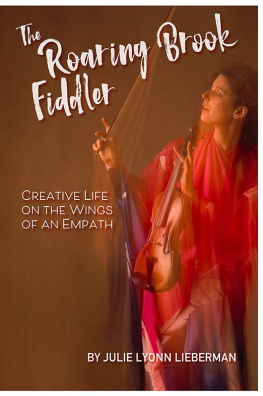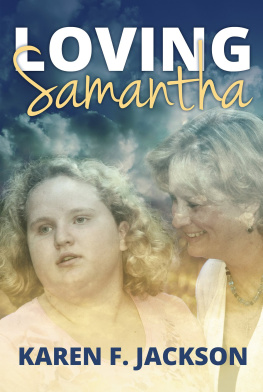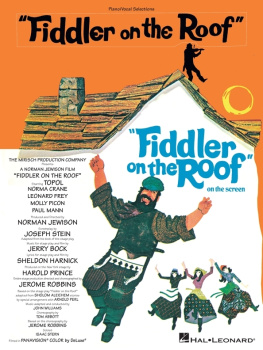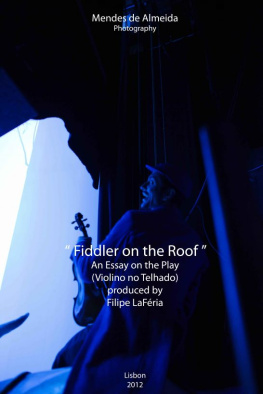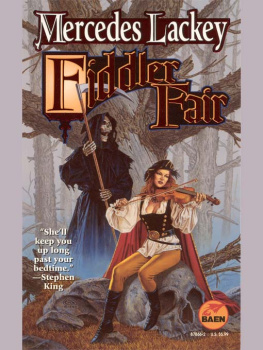VANGUARD E-BOOK
Copyright 2020
Samantha Hahn
The right of Samantha Hahn to be identified as author of
this work has been asserted by her in accordance with the
Copyright, Designs and Patents Act 1988.
All Rights Reserved
No reproduction, copy or transmission of this publication
may be made without written permission.
No paragraph of this publication may be reproduced,
copied or transmitted save with the written permission of the publisher, or in accordance with the provisions
of the Copyright Act 1956 (as amended).
Any person who commits any unauthorised act in relation to
this publication may be liable to criminal
prosecution and civil claims for damages.
A CIP catalogue record for this title is
available from the British Library.
ISBN 9781784658649
Vanguard Press is an imprint of
Pegasus Elliot MacKenzie Publishers Ltd.
www.pegasuspublishers.com
Acknowledgements
I started this book by dragging my loving castmates into the stairwell at intermission during the show and asking them to talk about their experience. Im endlessly grateful for everyone who met me in cramped corners backstage or in the theatre to entertain my random questions. Your words are what make this book so beautiful to me. Thank you to my parents, Zalmen Mlotek, Rachel Zatcoff, and Raquel Nobile for your endless and unwavering support on this ambitious project. I love you all. Thank you to Jamibeth Margolis for bringing the Fiddler family together, and to everyone who has ever been involved in this special show. The biggest thank you to Joel Grey for inspiring me, bringing me into this family, and teaching me more than I can say. You are always right. Thank you to everyone at Pegasus for bringing this story to life.
S a mm y
R ole: Beylke
I was nearing the end of my sophomore year of college at Manhattan School of Music, and coming up on the tech week for our production of the musical Smil e , whe n I saw an audition post for Fiddler on the Roof in Yiddish . The post said that they were looking for a male or female violinist who is also a strong actor/mover: a type that I by no means identified with. I loved Fiddler on the Roo f , though , an d I wante d t o audition for it. I emailed the casting director, Jamibeth Margolis, and said, I cant play the violin but I can sing, act, and move and would love to be considered for a role in Fiddler on th e Roo f in Yiddish . Much to my excitement, I received an email ba c k the next day with an appointment and audition sides for Beylke and Shprintze, Tevyes two youngest daughters. I went to the head of my program and told him about the audition, and he said I was not allowed to go because I would be missing part of a tech rehearsal for Smil e . I had never missed a rehearsal before, so I made the gutsy decision to interpret his disapproval as a mere personal piece of advice. I quickly emailed the stage manager and directors of Smile at my school and said, I have an audition for a pro j ect that is very important to me, and I need to be late to this tech rehearsal. I cant miss the audition, but I will be as quick as possible getting back. Thank you so much in advance for understanding. My stage manager emailed me back and sai d , Be as fast as you can, and break a leg at your audition.
On April 19th, 2018, I ran around the dorms in search of a long skirt to borrow, printed off all the sides, and started working on the Yiddish with the little pronunciation recordings that were attached to the audition email. Motl Didner, the associate director and Yiddish coach, had recorded tracks of himself reading the Yiddish sides for us, which was very helpful to me since I had not heard much of the language before. I practiced until I had everything memorized and was comfortable enough with the material that I could work on making acting choices and having fun with it. I called my mom and sang Matchmaker in Yiddish for her because I knew that she would love to hear it. I watched the Fiddler on the Roof movie and pictured myself as one of the little girls who j umped in front of the window at the end of the Matchmaker scene. On the day of the audition, I hopped on the one train after class with a h eavy backpack and a change of clothes for tech rehearsal. I was practicing my lines on the way there and singing Matchmaker out loud on the subway like a crazy person, when I realized that I had forgotten to look up how to pronounce the names of the cha r acters I was auditioning for. They didnt include the names of the characters in the recording we were sent, and I had absolutely no idea how to pronounce Beylke or Shprintze. I frantically searched on Google, but the service on the train was terrible and I couldnt find anything helpful. I kept practicing the sides and j ust prayed that nobody would ask me which characters I was auditioning for. To my relief, no one ever asked me. I got to the audition, signed in, and waited to be sent in the room. When I walked in, there was a panel of peopl e with Joel Grey sitting right in the middle. I looked at everyone and smiled, introduced myself, and before I knew it, I was singing Matchmaker in Yiddish. When I was finished singing, Joel Grey looked at me and s aid, That was j ust so sweet. How about the sides? I read the sides with Motl Didner, and Joel said, Perfect. Then Motl said, Can you try that last line again, and really roll the r there? I thought, oh man, I totally can t roll my r s. This is go i ng to be awkward. I tried and failed to roll the r and thought, well, at least I had fun. They said, Thank you, and I said, Thanks! Nice to see you all, and walked out of the room. Then I ran outside, changed my clothes, hopped on the one train back t o school, and ran in late to my tech rehearsal. I checked in with the assistant stage manager, then threw on my mic and some rehearsal clothes and slipped onto the stage like I had been there the whole time. The next morning, I got a really bad cold.
A few days later I got an email that said I had a callback for Shprintze and Beylke. I was pretty over j oyed. They had given me a tricky new page of Yiddish to learn and asked me to prepare that along with the original material. I practiced everything again and got to play around with some more choices, but I was recovering from my cold and my voice was a little shaky. The callback was in about three days so I j ust hoped that I would recover by then; I was steaming and doing all of the remedies I could think of. We had our Sitzprobe for Smile at school that night and our music director already knew that I was going to be marking everything because I wasnt feeling well. After the first song at the Sitzprobe, I realized I could barely sing at all so I stopped singing with the ensemble numbers. I tried to do a couple of my solo lines, but they barely came out of me. I caught eyes with my music director, and he told me to sit this one out because I clearly couldnt sing. I went on complete vocal rest for the night, steamed before bed, and when I woke up my voice was still gone. I could barely speak, so I was freaking out. I had all of this new Yiddish material to learn and I had no voice to practice it with. I kept my mouth shut all day, tried to learn the Yiddish in m y head by listening to the recording, and prayed that I would wake up with a voice for the callback the next day. When I woke up the next morning, I chugged two glasses of water, showered, steamed, and then tried to do a vocal trill. I pretty much j umped up and down with relief and j oy when a sound came out of me. I did maybe three little vocal warm-ups and everything seemed good, so I ran my sides and the song out loud once. Then I shut my mouth again and went down to the callbacks, praying that my voice w o uld last.




